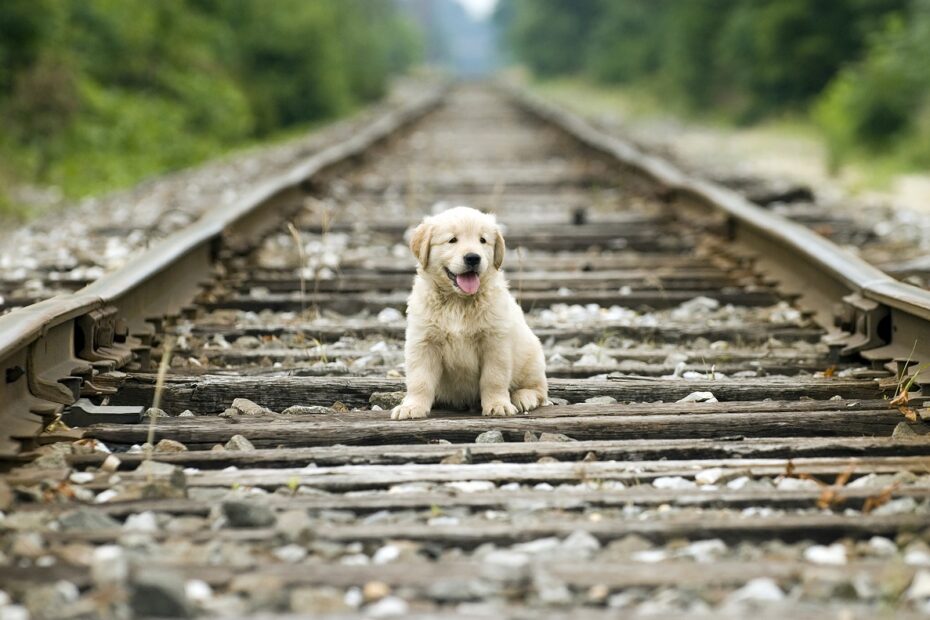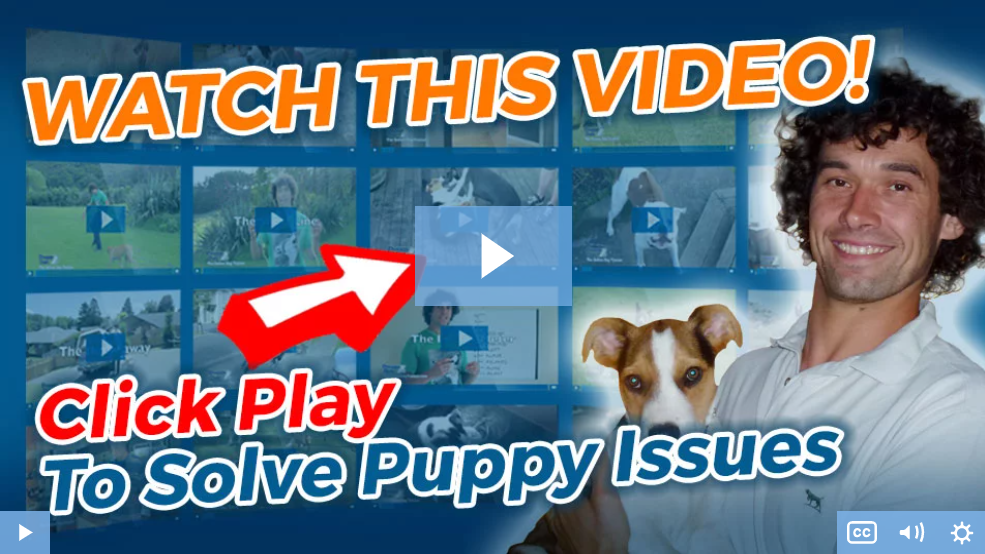In some ways, training a golden retriever puppy is like training any other pup.
Positive reinforcement, patience, time, some more patience…
All these things apply regardless of whether you’re training a golden retriever, a spaniel, a poodle, or anything else with four legs and a tail.
Some things are different, of course… and in the main, those differences are nothing to be scared of. In fact, they’re to be celebrated.
Golden retrievers are notorious people-pleasers. If they think that sitting, heeling, or fetching on cue is going to put a smile on your face, then as like as not, they’ll do it.
They’re also extremely intelligent… and if there’s one thing guaranteed to put a swing in a trainer’s step, it’s a smart student.
But you know what else all golden retrievers are? Individuals.
Sometimes, new pet owners innocently think their clever little pup will magically train themselves. Newsflash – they won’t.
All those well-behaved, mature, perfectly obedient golden retrievers you’ve seen didn’t get that way by the strength of their personalities alone. Someone trained them that way.
The number one rule of training a golden retriever? Be realistic. Your little bundle of fun might have potential to spare, but if you want that potential to go anywhere or do anything, you’re going to have to nurture it.
How?
Hold steady because you’re about to find out.
(video will open in a new window)
The Difference Between Training a Golden Retriever and Other Dogs
Not all dogs are cut from the same cloth.
Sure, their needs are all the same. Water, food, a walk around the park, plenty of time with their best buddy… show me a dog that doesn’t need any of those, and I’ll show you a cat in dog’s clothing.
But needs aside, breeds have differences.
Some breeds are the school nerds; others are the class clowns. Some like to please people any which way they can.
Others couldn’t give a hoot whether they do or don’t. Some have energy to spare, while others never quite wake up.
Some are… well, you get the picture.
Why does any of this matter?
Because recognizing what type of dog you’re dealing with is crucial to building a successful training program.
So, what kind of dog is a golden retriever?
If you’ve ever met one, you’re probably well aware that they’re smart… so smart, in fact, that they’re often trained as service dogs.
They’re also full of energy. Pups, in particular, can seem like nuclear-powered footballs as they whizz here, there, and everywhere.
And they’re loyal… boy, are they loyal. Family dogs to the core, these devoted little canines love nothing more than spending each and every waking hour with their favorite people…
And therein lies a problem.
If they aren’t trained and socialized properly as pups, golden retrievers can get a little ‘clingy.’
If they’re left alone in the house, they can become miserable and frustrated. And a miserable, frustrated dog is just one step away from becoming a destructive, badly behaved dog.
Likewise, all that energy can become a problem if you don’t teach them how to channel it properly or if you aren’t able to rein it in where necessary.
After all, an overly enthusiastic greeting from a 6lb pup is one thing. But your friends will probably be less enamored when they’re being jumped on by a 70lb adult.
And all those book-smarts? Great though they are, they can make a dog more prone to boredom.
Finding training programs that keep their little grey cells ticking over is crucial – as is practicing it regularly enough to keep them mentally stimulated. A minute here and a minute there every few weeks ain’t gonna cut it, I’m afraid.
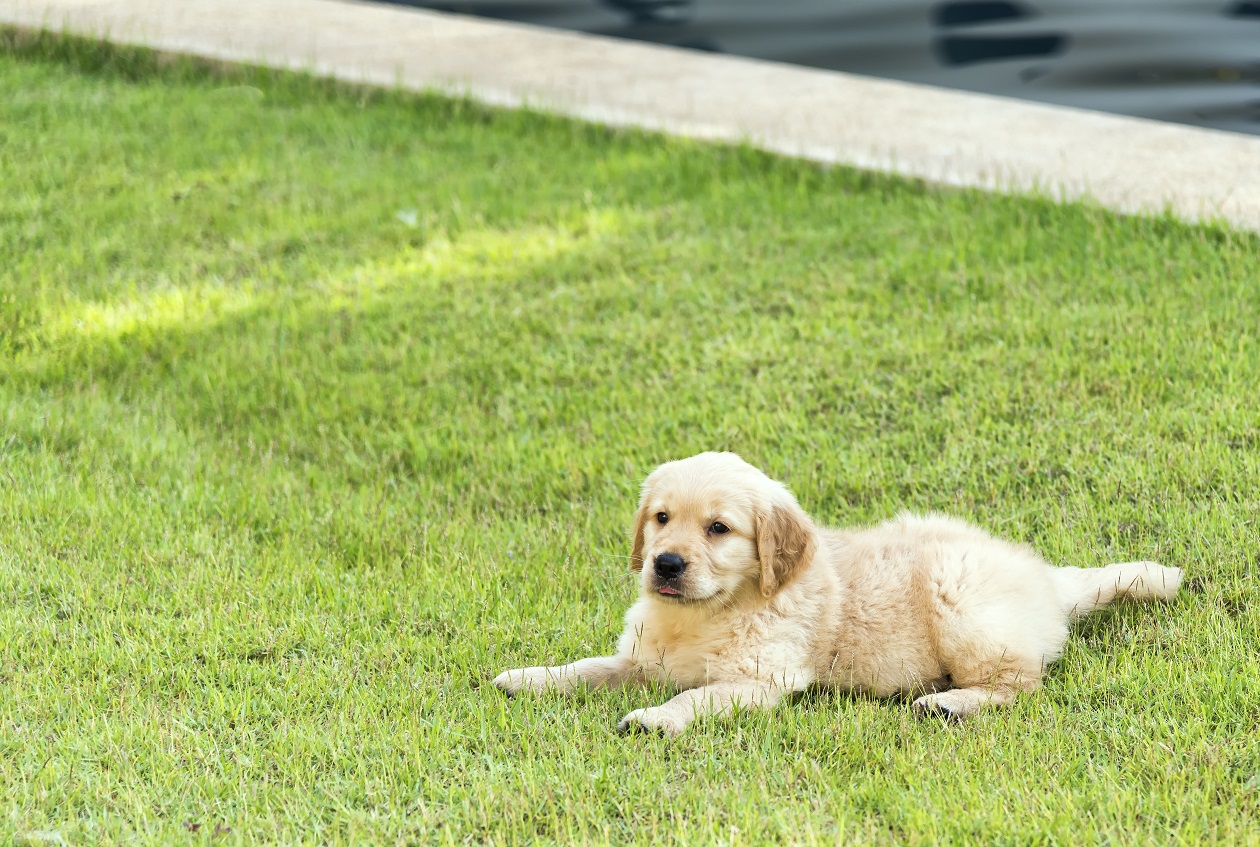
The Best Way to Start Training Your Golden Retriever Puppy
If starting a training program with your new pup seems daunting, don’t panic. It’s really not as hard as it looks.
Your new pup isn’t going to hate you for breaking away from the cuddles. If they’re anything like other golden retriever pups, they’ll love the challenge of having new things to learn and do.
Before you start any new training, I’d highly recommend getting your pup into a calm, relaxed state. All that boundless energy and excitement is fun. But not necessarily conducive to learning.
Try working these 5 step by step calming exercises into the start of every session. I promise you, they’ll do wonders at putting your pup into just the right kind of responsive, ready-to-train state you need.
Other than that, what else do you need to know about launching a new training program? These, for a start…
Don’t Leave it too Late
The best time to start training your golden retriever puppy? Now.
Some people think that young pups are too tiny to train. They’re not.
The best age to start training a pup is 2 months old.
Between 2 and 6 months, puppies go through several crucial developmental stages. And tapping into the right behaviors at these points is key to your pup growing into a happy, well-adjusted dog.
Obviously, training needs to be age-appropriate – excepting a 3-month-old pup to perform tricks is the equivalent of expecting a toddler to do algebra.
But providing you stay patient and work to your pup’s pace, the benefits of early training will soon start to show.
Know their Life Stages
Going back to what I mentioned in the last point, knowing what you can expect of your pup (and when) is key to developing an effective training program.
Although all pups develop at their own pace, most follow the same general pattern. Fortunately, this makes figuring out age-appropriate training much simpler.
As a rule of thumb, training should be structured as per the following:
2 – 6 Months
This is the stage to work on developing a bond with your pup. It’s that bond that’s going to form the foundation of everything else you do together.
It’s also a great time to start socializing.
Once they’re vaccinated, get into the habit of taking them wherever you go. The more people and pets they meet now, the less likely they are to develop any fears or phobias in later life.
If you can, sign them up for a puppy kindergarten. Your pup will love the chance to make some new playmates.
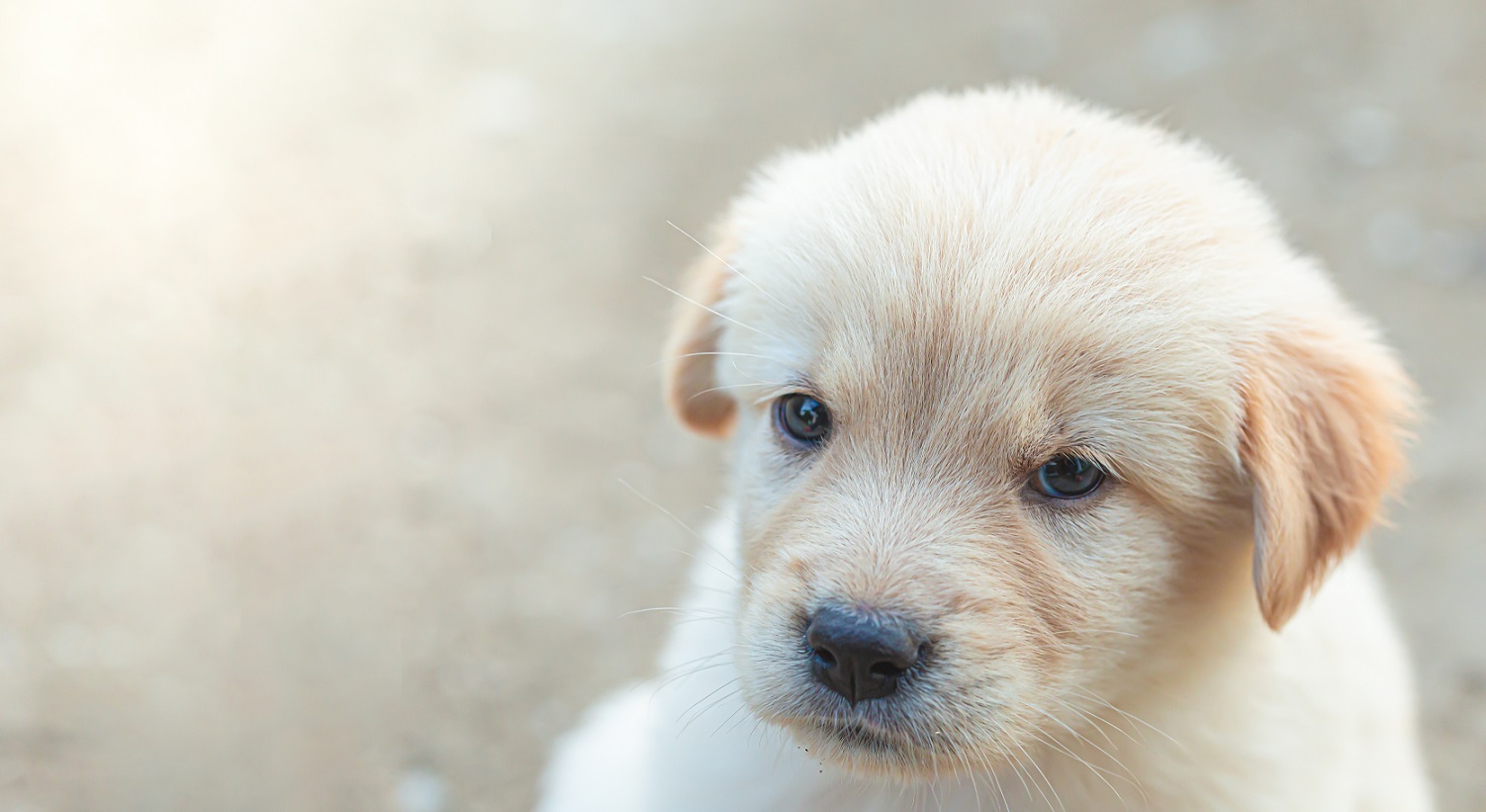
6 – 18 Months
Remember that foundation you built at the last stage? This is where it gets tested.
6 -18 months isn’t the easiest time for dogs. It’s not the easiest time for their owners, either. The ‘teenage years’ are marred with rampaging hormones, boundary testing, and a score of other trials and tribulations.
The best way to get through it?
Lots of healthy exercise. Now’s the time to build agility training, scent work, and other physical forms of training into your routine.
It’s also the perfect time to step up the obedience training and fine-tune basic commands like fetch it, drop it, and down.
If you’re struggling to stop your dog frolicking for long enough to get down to training. Keep working on building these 5 step-by-step calming exercises into your sessions.
I can’t promise they’ll calm down any human teenagers in your family, but I guarantee they’ll work on the canine ones!
18 – 24 Months
By now, you should have weathered the difficult teenage stage and come out the other side… hopefully still intact.
But your job’s not done yet.
Just because your puppy’s a young adult now doesn’t necessarily mean they know everything there is to know.
Some dogs take longer to master certain skills, so now’s the time to start working on any knowledge gaps.
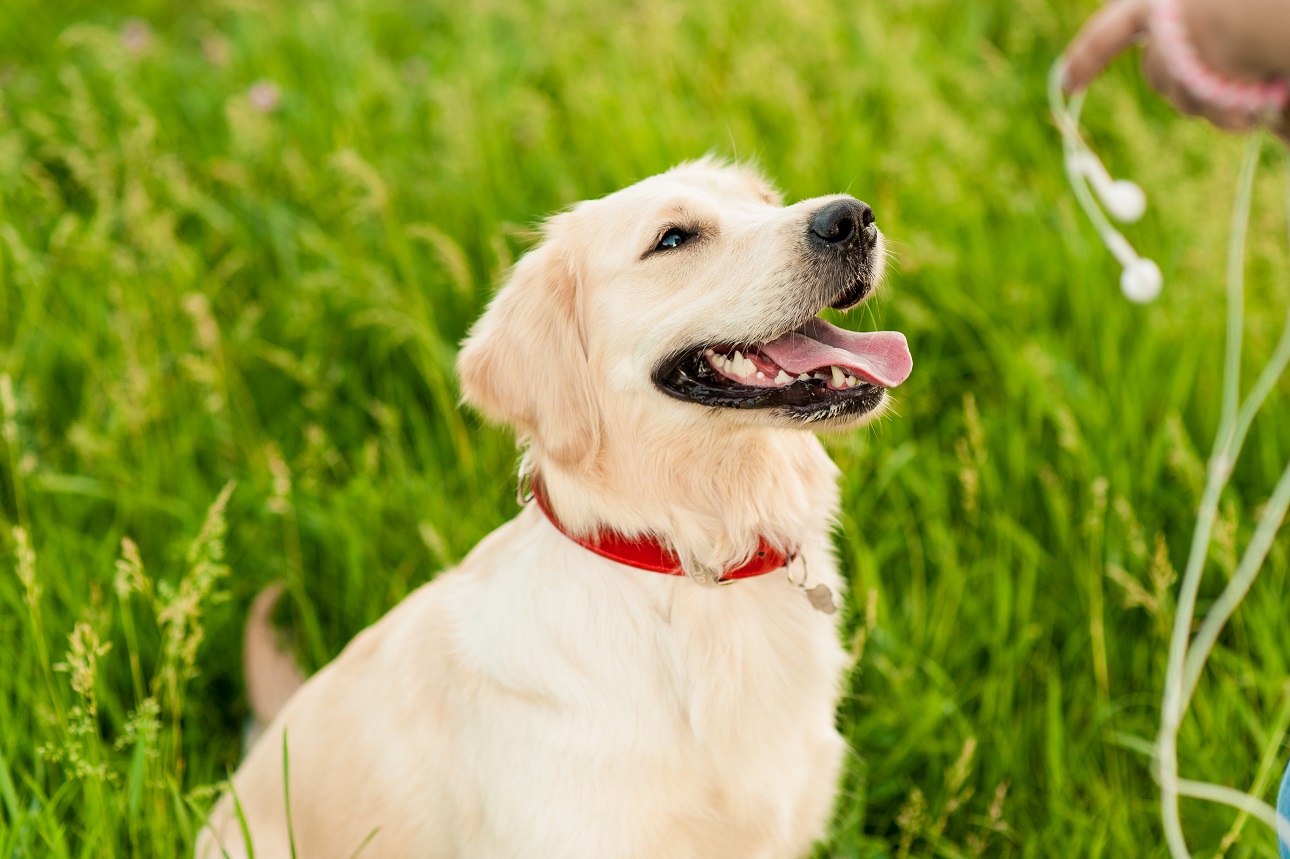
Make Training a Family Activity
If you live alone, feel free to skip this next suggestion. If you don’t, sit up and pay attention.
Your golden retriever is awesome… too awesome to keep just to yourself.
Help build your pup’s relationship with the whole family by drawing everyone into the training process.
Ask your partner, your children, even your parents to work on practicing basic skills like obedience commands with your pup.
Not only will it help develop the bonds between your family and your pup, but it’ll also take the pressure of you… two hands are always better than one, after all.
Have Fun
Training shouldn’t be considered a necessary evil. Yes, it can be challenging at times. Somedays, you’re not going to want to bother. And that’s fine. That’s normal.
But don’t let yourself get into the mindset of seeing training as a chore. If you do, you’ll stop enjoying it. Worse still, your pup will.
Keep things fun. Use games as much as possible – not only will your pup learn from them, you’ll probably have a great time too.
Try to use a happy tone of voice and avoid repeated use of negative words like ‘No.’ Your pup will pick up on any frustration and stop enjoying the experience. And once they do, you will too. It’s a two-way street.
Keep it Positive
Forget any thoughts of using punishment or corrective forms of discipline in your training. They don’t work, believe me.
The best and most effective form of training is one that uses positive reinforcement as its basis.
The aim of the game is to teach your pup to love learning… and what better way to do that than by appealing to their bottomless bellies?
When your pup’s good, reward them with a morsel of their favorite snack. When they master a new trick, treat them to some more of the same.
The more you show them how pleased you are with certain behaviors, the more they’ll want to do them.
Let Your Pup Set the Pace
Golden retrievers might be smart as a rule, but all pups progress at their own rate. Some might master skills in no time at all, while others might need longer.
Monitor their progress as you move through the stages. If you feel they haven’t quite got the grasp of certain basics, don’t feel compelled to move on just because their playmates have.
Ultimately, training isn’t a competition or a race to the finishing line – as long as you’re headed in the right direction, that’s all that matters.
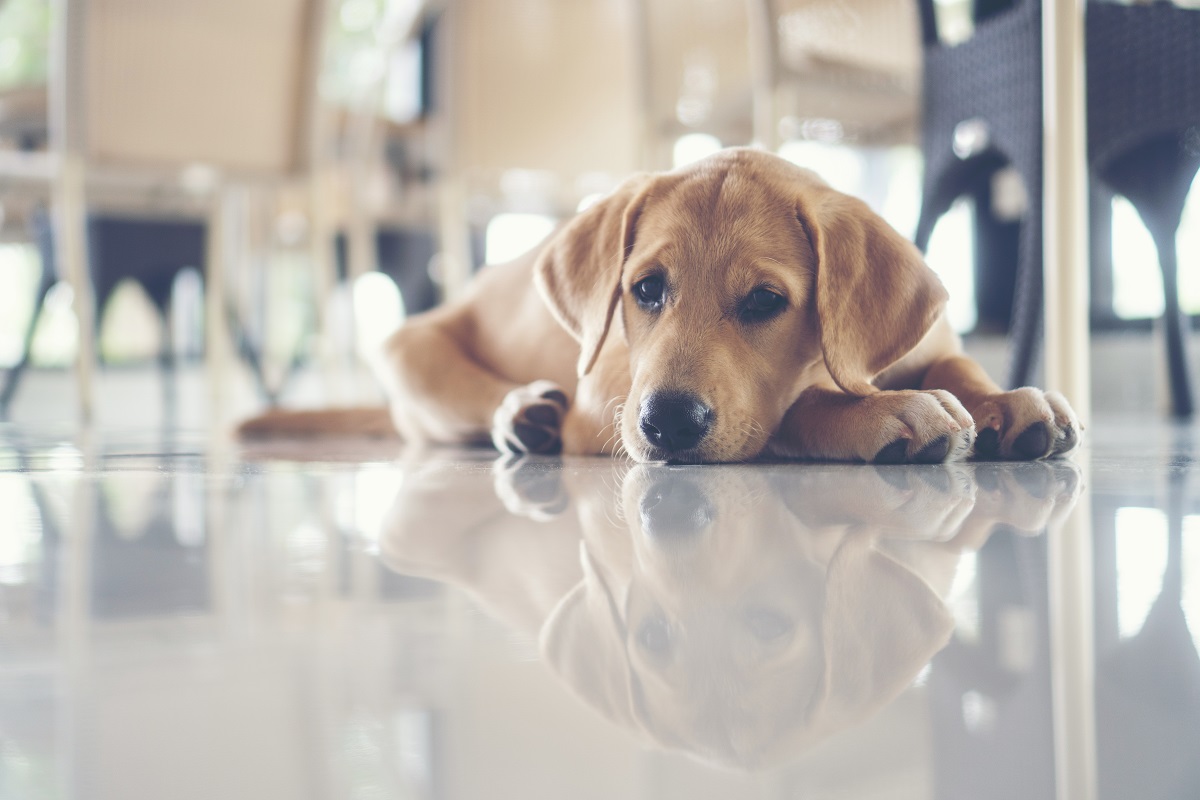
Common Problems and How to Overcome Them
No matter how fun training is, it’s never going to be problem-free 100% of the time.
Challenges are natural, they’re normal, and they’re nothing to be feared… providing you don’t let them stop you.
Knowing what kind of issues you might run into and learning what you can do to overcome them, Is one of the most vital (but all too often neglected) aspects of training and raising a pup.
So, what kind of challenges can you expect from training a golden retriever?
The Bored Puppy
If your puppy thinks it’s more entertaining to chew off their own foot than pay attention during your training, you’ve got a problem.
But fortunately, it’s a problem that’s easy enough to solve.
Training shouldn’t just be about hard work and boring exercises. It should be about having fun, especially when you’re dealing with a pup that loves fun as much as the golden retriever does.
Work on introducing plenty of games into your sessions – the more they see that learning can be fun, the more they’ll want to engage with it.
The Easily Distracted Puppy
All young pups, regardless of gender, breed, color, or anything else, have one thing in common…
…Short attention spans.
And to be honest, it’s not something you’re going to be able to cure that easily. And fortunately, you don’t have to.
Give them some time to mature, and eventually, they’ll be able to pay attention for more than 5 seconds at a time.
For now, just go with it. Forget about keeping to hour-long training sessions – it’s not going to work.
Keep sessions short, sweet, and frequent: a few 5-minute sessions sprinkled throughout the day will be far more effective than one mega-session.
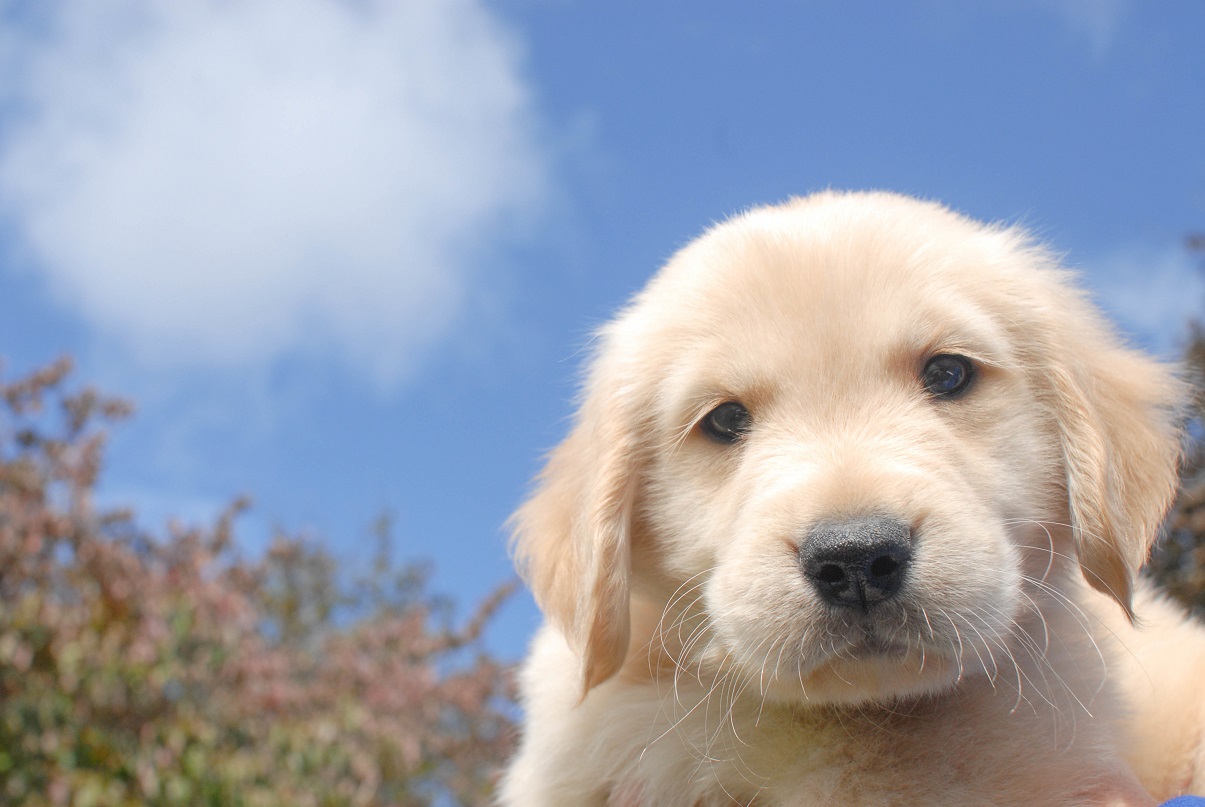
The Over-Excited Puppy
Puppies get excited. Constantly, and usually over the tiniest thing. While it’s all part of their charm, it doesn’t always make for an easy training session.
If your pup’s bouncing around like a 4-year-old in a candy store, the chances of them hearing, let alone absorbing, anything you say during training is slim to none.
Of course, you could always skip the session and reschedule. The problem is, they’ll probably be just as excited then. And the next time.
Unless you know a way to accelerate the aging process. Finding a way to deal with your pup’s excitement is going to be crucial if you ever want to get any training done.
To introduce some calm into their life, check out these 5 step-by-step calming exercises from Doggy Dan over at The Online Dog Trainer.
Spending a few minutes practicing the techniques at the start of each session will make a huge difference to how much time your pup spends learning versus how much time they spend bouncing off the walls.
Final Thoughts
Golden retrievers can be a joy to train. They can also be a massive pain in the proverbial.
But that’s puppies for you.
Ultimately, training your pup isn’t always going to feel rewarding. Sometimes, it’s going to feel like you’re taking more steps back than you are forward.
But providing you keep going, providing you stay patient, and providing you keep having fun, you’ll get there. And when you do, trust me – all the effort will have been worth it.
